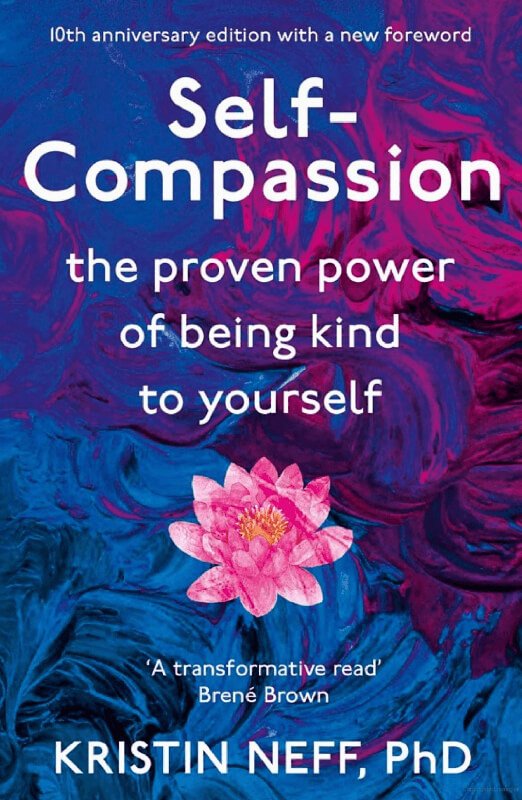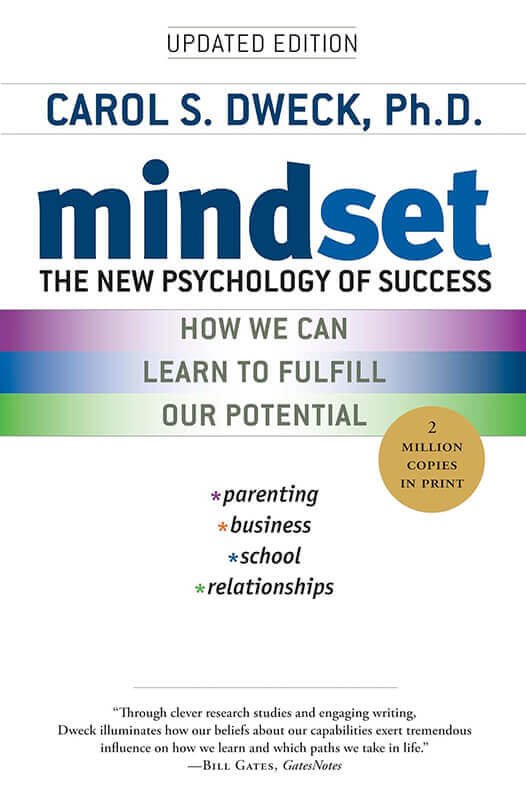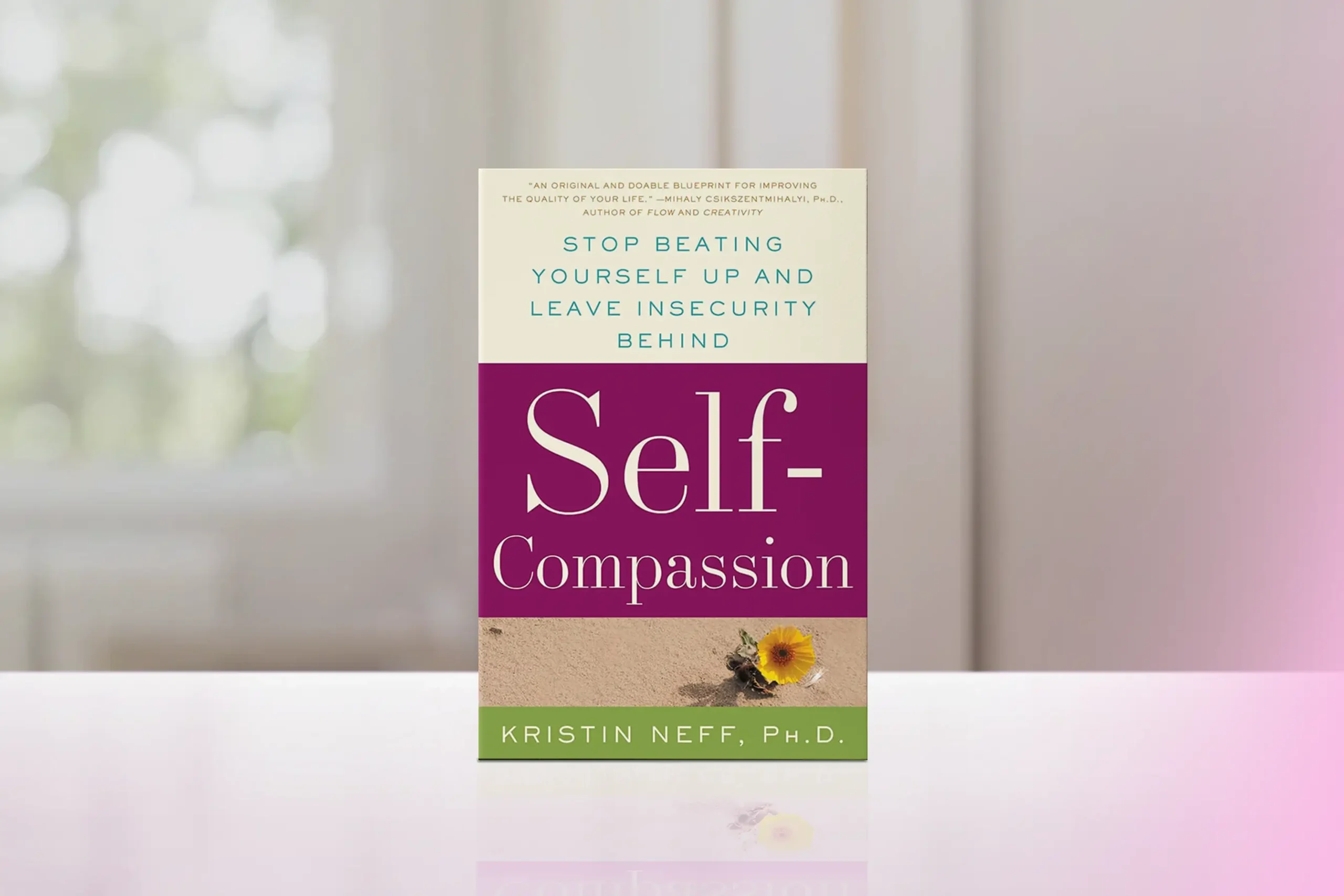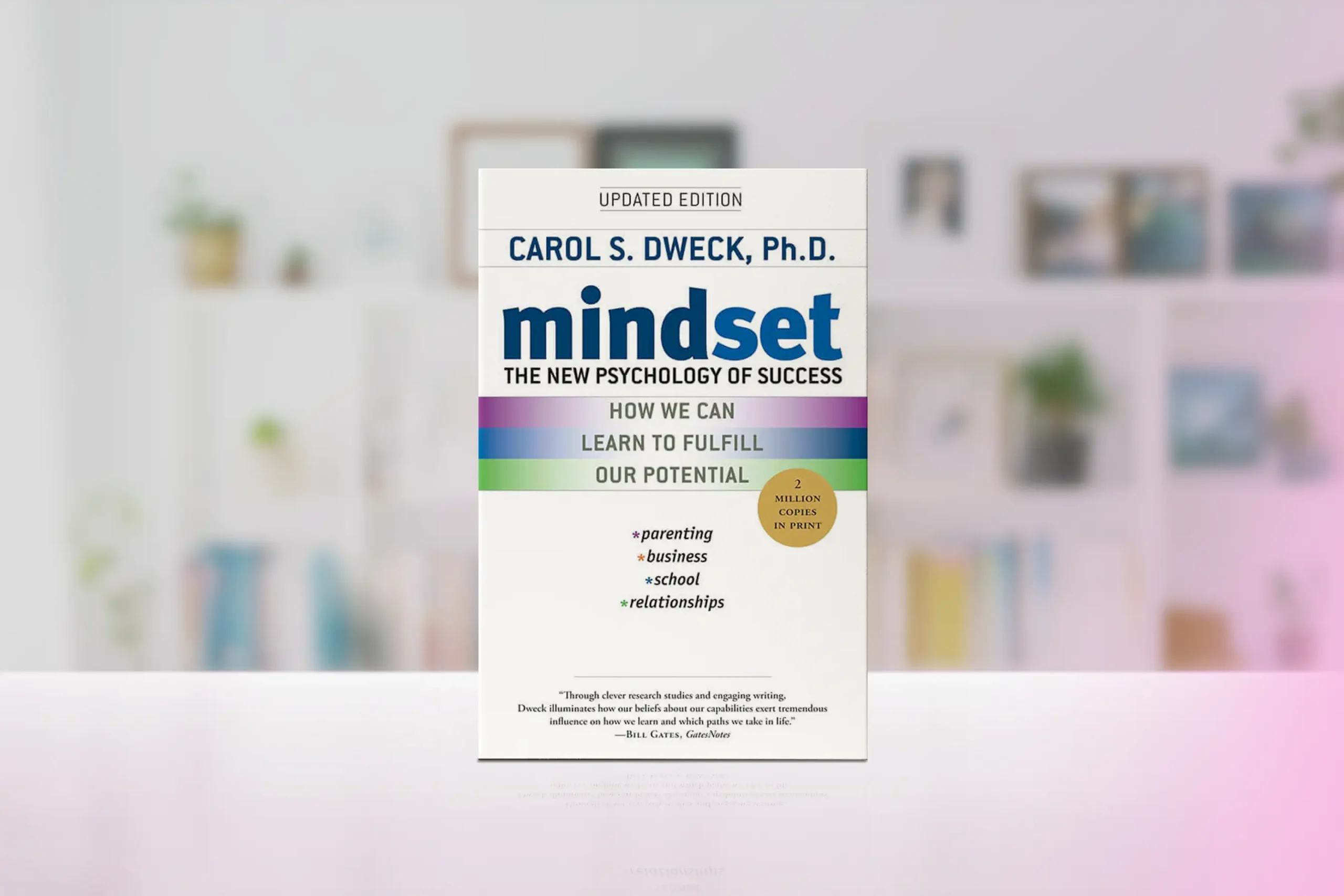In a world that often emphasizes self-criticism as a path to improvement, Kristin Neff’s “Self-Compassion: The Proven Power of Being Kind to Yourself” offers a refreshing and scientifically-backed alternative.
Published in 2011, this groundbreaking book introduces the concept of self-compassion as a powerful tool for personal growth and emotional well-being.
Neff, a pioneer in the field, presents a compelling case for treating ourselves with the same kindness we’d offer a good friend, revolutionizing how we approach self-improvement and mental health.
Core Concepts
Neff’s approach to self-compassion is built on three key components:
- Self-kindness: Treating oneself with care and understanding
- Common humanity: Recognizing that imperfection is part of the shared human experience
- Mindfulness: Observing thoughts and feelings without judgment
By integrating these elements, readers can develop a healthier relationship with themselves, leading to increased resilience, motivation, and overall life satisfaction. Neff’s work aims to transform self-criticism into self-compassion, fostering emotional strength and personal growth.
Chapter-by-Chapter Review
Part One: Why Self-Compassion?
Covers the introduction to self-compassion and recognizing harmful self-criticism, including exercises to build awareness.
Chapter 1: Discovering Self-Compassion
Neff explains how striving to feel “special” leads to comparison, insecurity, and self-criticism. Instead of hiding flaws or inflating ego, she suggests noticing suffering and responding with warmth. Simple exercises like reflective writing help reveal inner critical patterns.
Chapter 2: Ending the Madness
This chapter examines cycles of perfectionism and harsh inner judgment, showing how they arise from cultural and family pressures. Neff illustrates how self-image control distorts reality and harms well-being, then offers practices to observe and gently shift these patterns.
Part Two: The Core Components of Self-Compassion
Discusses the core components of self-compassion — self-kindness, common humanity, and mindfulness.
Chapter 3: Being Kind to Ourselves
Neff defines the first core element: kindness toward oneself in difficult moments. She contrasts it with harsh self-judgment and shows how culture often prizes toughness over gentleness. The chapter explores what kindness actually looks like in practice: speaking to yourself with understanding, allowing yourself to feel your pain, and offering comfort rather than blame.
Chapter 4: We’re All in This Together
This part discusses recognition of common humanity — understanding that suffering and imperfections are universal, not personal failings. Neff argues that realizing others share the same struggles helps reduce feelings of isolation and shame.
Chapter 5: Being Mindful of What Is
Here the balanced awareness component: observing one’s thoughts and feelings without exaggerating or suppressing them. Neff shows how mindfulness prevents over-identification (getting carried away by negative thoughts), and supports a more honest, grounded view of one’s experience.
Part Three: The Benefits of Self-Compassion
Explores the psychological benefits like emotional resilience, motivation, and a healthier sense of self-worth.
Chapter 6: Emotional Resilience
Neff presents research showing that being gentler with oneself helps people recover better from failures, reduce anxiety and depression, and cope with negative emotions in healthier ways.
Chapter 7: Opting Out of the Self-Esteem Game
She critiques self-esteem dependence on external success and comparison. Neff argues those dependencies make us vulnerable — when things go wrong, when comparisons fail, self-esteem collapses. She proposes shifting toward a more stable sense of worth based on kindness, awareness, and humanity.
Chapter 8: Motivation and Personal Growth
This chapter shows that being supportive (instead of harsh) actually helps one learn, try again after failure, and grow. Harsh self-criticism tends to demotivate, while a kinder internal voice encourages persistence and exploration.
Part Four: In Relation to Others
Applies self-compassion to relationships with others, parenting, and intimacy.
Chapter 9: Compassion for Others
Neff discusses how the way we treat ourselves reflects outward. If we have internal kindness, we can show more empathy, genuine connection, and less defensiveness in relationships. Also the need for boundaries to avoid burnout when caring for others.
Chapter 10: Self-Compassionate Parenting
Here, Neff applies the same ideas in parenting: how parents can balance acceptance and understanding with discipline; how admitting mistakes and being authentic teaches children resilience and self-acceptance.
Chapter 11: Love and Sex
Neff explores intimacy and vulnerability — how shame, insecurity or fear of rejection limit genuine connection. A kinder, more accepting internal attitude supports better communication, trust, and more fulfilling relationships.
Part Five: The Joy of Self-Compassion
Addresses personal transformation and cultivating genuine self-appreciation.
Chapter 12: The Butterfly Emerges
Neff uses the metaphor of a butterfly to describe transformation: over time, as the components are practiced, many people experience less self-criticism, more peace, more capacity to be present with their own life.
Chapter 13: Self-Appreciation
The final chapter focuses on noticing one’s strengths and what one is grateful for — not to boast, but to genuinely recognize what one does well, the inner qualities, the growth. This helps build a stable, authentic sense of worth that isn’t contingent on always being perfect.
Key Strengths
- Offers a well-researched, scientifically-backed approach to self-improvement
- Provides practical exercises and techniques for implementing self-compassion
- Challenges harmful societal norms around self-criticism
- Presents a balanced view of self-compassion, addressing common misconceptions
- Includes relatable personal anecdotes and case studies
Potential Drawbacks
- Some readers may find the concept initially challenging, especially if deeply ingrained in self-critical patterns
- The academic background of some sections might be dense for casual readers
Who This Book Is For
This book is an invaluable resource for a wide range of individuals seeking to improve their emotional well-being and personal growth. It’s particularly well-suited for:
- Those struggling with self-criticism and negative self-talk
- Mental health professionals and coaches looking to incorporate self-compassion into their practice
- Individuals dealing with perfectionism or imposter syndrome
- Anyone seeking a more balanced and kind approach to personal development
Final Review
“Self-Compassion” is a transformative book that has the power to radically change how you relate to yourself and navigate life’s challenges. Neff’s blend of scientific research, practical exercises, and compassionate approach makes this book both intellectually stimulating and emotionally resonant. By embracing self-compassion, you can cultivate a more nurturing inner voice, leading to greater emotional resilience and overall well-being.
While the concept of self-compassion may feel unfamiliar or even uncomfortable at first, Neff provides a clear roadmap for integrating this powerful practice into your life. The potential benefits – from reduced anxiety and depression to increased motivation and life satisfaction – make this journey of self-discovery well worth the effort.
Rating: 4.6/5
The book is an essential read for anyone looking to develop a healthier, more compassionate relationship with themselves and unlock their full potential for personal growth and happiness.

Alternative Books
If you are looking for other books that offer complementary perspectives on personal growth and emotional well-being, consider these alternatives:

The Power of Now by Eckhart Tolle
Explores mindfulness and living in the present moment.
Rating: 4.6/5

Mindset: The New Psychology of Success by Carol S. Dweck
Discusses the impact of our mindset on success and personal development.
Rating: 4.6/5

The Gifts of Imperfection by Brené Brown
Offers insights on embracing who you are and letting go of who you think you’re supposed to be, aligning well with self-compassion principles.
Rating: 4.7/5





